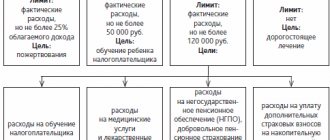Today, in times of economic crisis, the question of how a family with a large number of children can get a free apartment from the state is especially acute and relevant. For low-income citizens and citizens with many children, the Government annually introduces new benefits and allowances that help them at least somehow stay afloat. However, they are completely insufficient to purchase a roof over your head. And then there is only one way out - to get on the municipal queue to receive housing. What benefits are available to couples with three or more children, how a large group of society can receive a subsidy for an apartment in Moscow, St. Petersburg and other regions of Russia - this article will tell you about this and much more.
How to get a subsidy for an apartment?
According to the Federal Law of the Russian Federation, signed by the President on December 29, 2014, a subsidy for an apartment from the state for a large family is provided to those citizens who have three or more children and whose living conditions do not meet the established living standards.
Subsidies in this case are loans on preferential terms - up to 40% of the cost of housing is paid by the state.
The advantages of this mortgage lending system are as follows:
- spouses can take out a mortgage on an apartment without making a down payment
- the borrower can involve his family members as guarantors
- Maternity capital may be used to repay the loan
- the borrower can lower the interest rate on the loan or defer the loan payment
- The loan agreement is issued for a long-term period - up to 30 years
Housing subsidies for large families are issued under the following conditions:
- loan for 10 years is issued at 10% per annum
- loan for up to 30 years – 11.7%
- if the spouses have another baby, then 18% is deducted from the remaining debt amount
How to get an apartment from the state for a large family in Moscow?
To receive an apartment from the state for a large family in Moscow, the following conditions must be met:
- adult members must have Russian citizenship and Moscow registration
- a social unit must officially be given the status of a large one - that is, the number of minors must be three or more 3
- living conditions must be declared unsuitable by a special commission - a dilapidated house, lack of utilities, and so on
- the absence of an apartment in Moscow owned by one of the family members - for example, living in rented living space
- per person there is a square footage of area below the required standards
If the cell meets these criteria, then it must contact the Moscow municipality and get on the waiting list for housing.
In St. Petersburg
How can a large family get an apartment from the state in St. Petersburg?
First of all, you need to meet the conditions prescribed in the law of the Russian Federation, namely:
- have Russian citizenship
- live in the northern capital for at least 10 years
- be in need of housing
Groups of citizens who have the right to register in St. Petersburg:
- low-income people – whose monthly income is below the officially established minimum subsistence level in St. Petersburg
- large families – having three or more young children under 18 years of age
- WWII veterans, veterans and disabled combat veterans
- couples with disabled children
- Heroes of the USSR and the Russian Federation
- full Knights of the Order of Glory
- Heroes of Socialist Labor
- rehabilitated citizens, persons who lost their housing in St. Petersburg during the period of repression and other categories
What changes were planned in 2019
On February 20, 2020, in his speech V.V. Putin proposed several changes to legislation to support families with children. These changes will also affect large families.
A significant aspect in 2020 will be the possibility of obtaining a mortgage with a reduced interest rate for families with two or more children (6%).
There is also a property tax benefit - an additional 5 sq. m for each child in the apartment and 7 sq. m in a private house.
Additionally, it became possible to make the living conditions of such families much better, since the state, upon the birth of a third child, undertakes to pay 450 thousand of the mortgage loan.
Together with maternity capital, it comes out to approximately 900 thousand rubles - these funds can be used to pay for the mortgage.
It is not known exactly how the mortgage will be compensated after the birth of the third child.
But, if we rely on Golikova’s statement, the state will deposit funds in the amount of 450,000 rubles directly into the bank as repayment of the mortgage loan. From a large family, only an application is required.
Read more: How to transfer a land share to another person
All these measures are aimed at improving the standard of living of families with children, increasing the birth rate in Russia and, most importantly, helping to solve housing problems that are so pressing for our citizens.
Video: Compensation for land for large families: apartment or money?
One of the ways to improve living conditions in Russia is to provide living space from the state - partially or completely free of charge. The circle of persons entitled to such a preference includes various categories of the population depending on social status, financial situation, health and merit.
Dear readers! The article talks about typical ways to resolve legal issues, but each case is individual. If you want to find out how to solve your particular problem , contact a consultant:
+7 (Saint Petersburg)
APPLICATIONS AND CALLS ARE ACCEPTED 24/7 and 7 days a week.
It's fast and FREE !
Large families are given priority for housing. Read more about this in the article.
How can a large family get an apartment from the state in Crimea?
Conditions for the provision of housing in Crimea.
As in other constituent entities of the Russian Federation, large families living in Crimea have the right to receive an apartment from the state. There is also a targeted state program “Housing” for Crimeans. In 2020, 32 Crimean couples with children have already used it.
To get an apartment at the expense of the state, the budget of a low-income group with many children must be:
- not less than 21.6 thousand rubles for 2 people
- not less than 32.5 thousand rubles. for three and so on
Nuances
How can a family with a disabled child get it faster?
A family with a disabled child can receive housing out of turn if the child suffers from an illness that makes it difficult for all family members to live in the same living space.
Such diseases are listed in Government Decree 378.
Does a single mother have privileges?
A single mother is considered to be a woman who gave birth to a child outside of marriage or 300 days after the dissolution of marriage.
Single mother of many children - who gave birth to more than two children while not married.
However, the legislation on social support does not provide for separate rights and benefits on how to obtain housing for mothers or fathers with many children, so you need to be guided by the general rules.
Read more: What documents are needed to open a children's center
- Due to frequent changes in legislation, information sometimes becomes outdated faster than we can update it on the website.
- All cases are very individual and depend on many factors. Basic information does not guarantee a solution to your specific problems.
That's why FREE expert consultants work for you around the clock!
- via the form (below), or via online chat
- Call the hotline:
- Moscow and the Region
- St. Petersburg and region
- Regions
APPLICATIONS AND CALLS ARE ACCEPTED 24/7 and 7 days a week.
You can obtain the status of a large family after the birth or adoption of a certain number of children. This category is assigned to those units of society that have 3 or more dependent children under 16 or 18 years of age. This status can be extended up to 23 years of age if these persons enter the full-time department of an educational institution.
How to quickly get on the waiting list for housing for a large family?
In order to quickly get on the waiting list for housing for a large family, it is necessary to collect all the necessary documents as soon as possible, and this is:
- certificate confirming the status of a large family
- an act stating that housing conditions need significant improvement
- solvency documents
- certificate of family composition and other papers
Next, with this package of documents, you should personally contact the district government body.
The procedure for participating in the free housing program from the state is as follows:
- You hand over a set of documents to the program curator at the district administration
- after 10 working days, a decision is made to accept you into the program, of which you will be notified within five days after the decision is made
- with the notification received, you must come to the municipality to receive a certificate for social benefits
- You can use this certificate to purchase housing within the framework of the state housing program by transferring the received certificate to the bank along with the purchase and sale agreement
- The bank, having received funds from the budget, transfers the required amount to the account of the owner of the living space, and you pay the rest yourself
Every year, before September 1, municipal administrations announce a list of families who will receive subsidies next year. Your chances of receiving payment next year increase if you are registered as needing improved housing conditions before September 1st.
Options
Large families have the right to choose the type of state assistance:
- payment to improve living conditions - if there is already residential property, and the owners decide to expand it or sell it and purchase a new one, adding up the income from the sale and the subsidy;
- accommodation under a social rental agreement - provision of housing with a large area for each family member on preferential rental terms;
- interest-free home mortgage.
Obtaining housing using one of these methods deprives the family of a claim to a free apartment.
Subsidy under a federal or regional program
The essence of such assistance is to pay for part of the purchase of housing with public funds. The other part can be paid from personal savings, a loan amount or a share of maternity capital.
The subsidy is provided from the regional treasury, so to receive such support you will also have to wait your turn - after all, the budget cannot satisfy all rights holders at the same time.
Subsidy principles:
- free payment procedure;
- are provided in the form of a certificate that can only be used to purchase housing or individual housing construction;
- the purchased housing is registered as a common share between all family members;
- you must use the certificate within the period specified on it (usually six months);
- the size of the subsidy is determined by regional authorities and may depend on the length of the queue, budgetary possibilities and other factors.
Read more: How to write an application to the water utility for recalculation
To receive a subsidy, all conditions must be met:
- three or more minor children;
- incomes below the subsistence level;
- need for housing - lack of housing in possession, under social rent, or the presence of such, but with insufficient space (each region independently sets the standard area for each resident, the average value is 10 square meters).
When the family waits its turn and receives a certificate or other similar document, it is necessary to open a bank account to which the funds provided will be transferred.
Within the validity period of the certificate, you need to find the desired home and conclude a purchase agreement, after which the bank will transfer funds from the account to the seller.
Social housing is free
Families who got on the waiting list for housing before 2005 have advantages over families who applied later, since they are subject to the same provision of free social housing - a temporary apartment with the number of rooms equal to the number of family members.
With the adoption of the Housing Code of Russia, large families can only enter into a social rental agreement in accordance with its 57th article, according to which they receive housing from the social housing stock, the standards of which are also established by the regions.
Preferential mortgage
The essence of a social loan for housing is the development by commercial banks of various programs for providing borrowed funds for the purchase of housing for large families on preferential terms.
According to general provisions, the initial contribution for housing is made by the family with its own savings - 30%. This rule is a great difficulty for citizens in need, since an apartment for 5 or more residents must have sufficient space and, as a result, a high cost.
However, at the regional level, credit organizations, guided by regional programs, have developed mortgage conditions that are more profitable and acceptable for low-income families.
The largest such organizations include:
- Sberbank of Russia;
- Housing Mortgage Lending Agency.
Also, many regions provide programs for the provision of land plots for individual housing construction, one-time subsidies for solving the housing problem, regional maternity capital for the third child, which can be spent on real estate.
Land for construction
In 2011, Federal Law No. 138 was adopted, according to which large families, mothers and fathers could receive land plots for housing construction. Since 2020, the law has been abolished, and the issue has been transferred to the jurisdiction of the regions.
To obtain land, you must be guided by the general rules indicated at the beginning of the article - the number of children, the need for real estate, the status of a low-income family.
Regions provide for the transfer and registration of land plots from 6 to 15 acres, depending on budget capabilities and family situation.
How and where to get in line?
- To get on the waiting list for housing, you need to obtain a certificate of the status of a large family. To do this, documents are submitted along with an application to Social Security or the MFC.
- Then a package of documents is submitted to the administration at the place of residence to obtain the status of a low-income family.
- If the property has living space that is insufficient for a comfortable family life, then documents about this are also prepared.
- With the entire package, you must again contact the local government authority or the MFC, where, after consideration, the family will be placed on the housing register and on a waiting list.
Required documents
What documents may be required to assign a low-income status:
- certificates of income of working family members;
- certificates of pension payments (if pensioners live with the family, they are also taken into account in the calculation);
- certificates of alimony payments;
- certificates of scholarships;
- certificates of social benefits;
- certificates of additional income - from leasing a vehicle, equipment, etc.;
- certificates of fees received;
- and other documents on income, in accordance with Decree of the Government of the Russian Federation of August 20, 2003 N 512.
To assign the status of a large family:
- copies of birth certificates of all children under legal age;
- certificate of full-time education for children under 23 years of age (not in all regions);
- a copy of the applicant's parent's passport;
- a copy of the marriage certificate;
- an extract from the house register or other document proving the joint residence of all family members in the same territory;
- a certificate stating that the second parent has not received a certificate for a large family before.
How to file a divorce with division of property? Find out here.
What to do if your upstairs neighbors are flooded? The action plan is in this article.
Approximate dates
The period for reviewing documents does not exceed one month.
The length of waiting in line is not regulated by law and can last for years or decades.
How and is it possible to get it quickly and without a queue?
Large families already belong to the category of subjects who are given priority when providing residential real estate.
Citizens whose living conditions are considered unsuitable and persons suffering from severe chronic diseases can pass in front of them.







